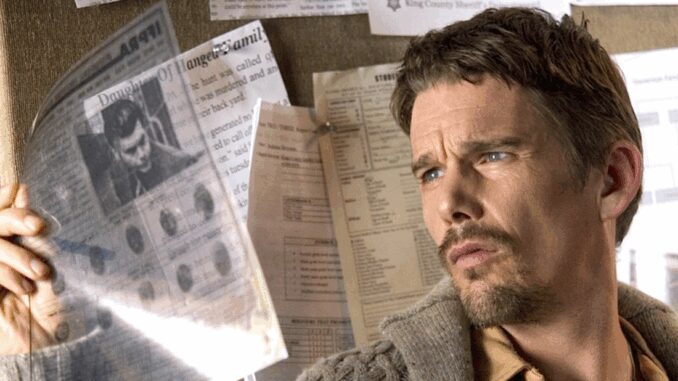
The Unsinkable Shadow: Ethan Hawke, Leonardo DiCaprio, and the Ocean of What Might Have Been
Ethan Hawke's career is a tapestry woven with threads of intellectual intensity, artistic integrity, and a certain charmingly rumpled authenticity. He's given us unforgettable performances in films like "Dead Poets Society," "Before Sunrise," and "Training Day," solidifying his place as a respected and vital actor. But behind every accomplished actor lies a ledger of near misses, of roles coveted and lost, and perhaps none stings quite as acutely as the one he lost to a young, hungry Leonardo DiCaprio: Jack Dawson in James Cameron's cultural behemoth, "Titanic." Hawke's recent reflections on this near-miss offer a glimpse into the volatile ecosystem of Hollywood, the capricious nature of destiny, and the lasting impact of a role that changed the trajectory of a generation.
The shadow of "Titanic" is long and inescapable. It's a film so ingrained in the collective consciousness that its title alone evokes images of sweeping romance, icy doom, and the unforgettable face of Leonardo DiCaprio. For Hawke, losing the part to DiCaprio wasn't just a setback; it was a pivotal moment in the narrative of his own career, a reminder that even the most talented are subject to the vagaries of the industry. His openness about the experience isn't an act of bitterness, but rather a testament to the enduring power of the role and the realization that sometimes, the best actor for the part isn't always the one who gets it.
Hawke's perspective transcends simple envy. He acknowledges DiCaprio's undeniable talent and the perfect fit he embodied as Jack. He recognizes that DiCaprio didn't just win the role; he became Jack, imbuing him with a vulnerability and rebellious charm that resonated with millions of viewers. This is a crucial point. While Hawke might have brought his own unique interpretation to the character, the synergy between DiCaprio and the role was undeniable, a lightning-in-a-bottle moment that contributed to the film's unprecedented success.
The loss, however, undoubtedly left its mark. In a world driven by perception and box-office returns, the "Titanic" role offered more than just a paycheck; it promised cultural immortality. It was a ticket to the A-list, a passport to global recognition. Losing that opportunity meant navigating a different, perhaps less glamorous, path. Hawke, known for his independent film choices and dedication to artistic integrity, found himself charting a course distinct from the instant stardom that consumed DiCaprio.
And perhaps that's where the silver lining lies. While DiCaprio's career skyrocketed into the stratosphere, Hawke's developed at a more deliberate pace, allowing him to explore a wider range of characters and cultivate a reputation for thoughtful, nuanced performances. He wasn't trapped by the weight of a single, iconic role, but rather allowed to evolve and experiment, solidifying his position as a serious actor who prioritizes artistic expression over mainstream appeal.
Furthermore, Hawke's willingness to discuss the "Titanic" experience humanizes the often-deified world of Hollywood. It reminds us that even successful actors face rejection and grapple with the "what ifs" that plague us all. It fosters a sense of connection, reminding us that the pursuit of dreams is rarely a linear path, and that setbacks can often pave the way for unforeseen opportunities.
In conclusion, Ethan Hawke's reflections on losing the role of Jack Dawson to Leonardo DiCaprio are more than just a footnote in film history. They offer a valuable lesson about the complexities of ambition, the fickle nature of fate, and the resilience required to navigate a competitive industry. While the "Titanic" undoubtedly holds a significant place in the narrative of his career, it's ultimately his dedication to his craft, his willingness to embrace unconventional roles, and his open honesty that have cemented his legacy as a true artist, proving that even in the shadow of the unsinkable, a brilliant star can still shine. The ocean of what might have been may always shimmer in the distance, but Ethan Hawke has navigated his own course, proving that success can be defined by more than just one role, no matter how epic.